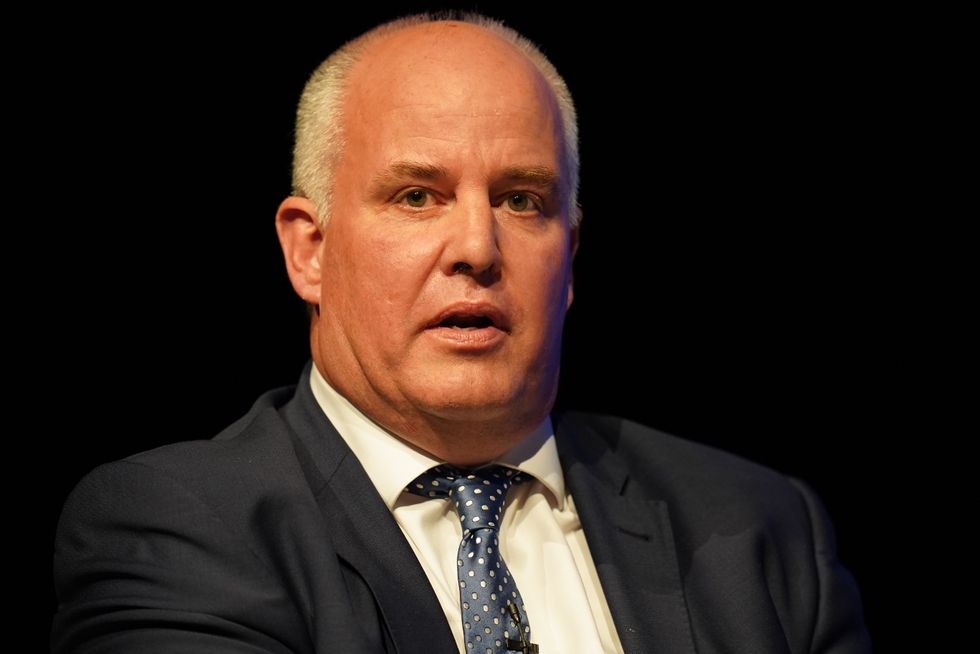The Welsh NHS has been criticized for recruiting an “equality, diversity and inclusion champion” on an exorbitant salary, despite recently being deemed “financially unsustainable”.
The champion will earn between £105,504 and £139,882 per year on a pro rata basis, funded by Welsh taxpayers. They will have to work “four sessions per week”, but it is not clear how many hours this entails.
This money could cover the salaries of five new nurses, assuming the champion starts at the upper end of the advertised scale.
Position roles include:
- “Contribute to and lead, where appropriate, national workshops and events focused on equality, diversity and inclusion. »
- “Provide clinical guidance, advice and support from an equality, diversity and inclusion perspective. »
And here are some of the desired skills:
- “The ability to develop effective working relationships. »
- “Proven ability to listen, empower, lead by example and lead change. »
- “The ability to work under pressure and remain professional and meet expected standards of behavior despite difficult circumstances. »
Helen Fawcett, who lives in Monmouthshire, south-east Wales, said: “I am incredulous at this work of the NHS.
“The Welsh NHS under Labor is in crisis. Ambulance waiting times are horrendous, my 103 year old mother had to wait 13 hours for an ambulance after falling and breaking her hip.
“They are closing the minor injuries unit at Brecon Hospital. Waiting lists for treatment are growing.
“Given the crisis, it would be better to spend this huge salary on the essentials! »
Andrew RT Davies MS, leader of the Welsh Conservatives, said: “Welsh taxpayers will be shocked by the huge sums of money available for equality and diversity jobs.
“Women’s health issues are vitally important, and this money would be much better spent on the front lines of our health services.
“Women, and indeed all patients in Wales, need more doctors and nurses in our health service, not more equality and diversity officers.”

Andrew RT Davies said: “All patients in Wales need more doctors and nurses in our health service, not more equality and diversity officers. »
Pennsylvania
News of the champion’s huge salary comes after the NHS in Wales was found to be financially unsustainable in THE latest audit of its finances.
Adrian Crompton, auditor general of Audit Wales, said: “While I recognize the scale of the financial and operational challenges facing the NHS, I am concerned that the seven health boards have failed to meet their legal duty to reach the break-even point over three years.
“The growing cumulative deficit of the NHS in Wales demonstrates that despite record levels of investment and higher levels of savings than ever before, the statutory framework put in place by the Welsh Government to ensure the financial sustainability of the NHS is not working not.
“While it remains urgent that NHS organizations continue to eliminate cost inefficiencies in the way they work, this alone is unlikely to bring the NHS back to financial balance.”
The Welsh NHS, run by Labor since devolution began in 1999, has been criticized for It is poor performance compared to Englandparticularly on waiting times.
The average wait in Wales for hospital treatment after referral is 21.8 weeks, compared to 14.9 weeks in England. In Wales, 21 per cent of people on waiting lists wait more than a year for treatment, compared to 4 per cent in England.
Before taking office, Keir Starmer said Wales was his “model” government. He has since refused to repeat his allegations.
Auditor General Crompton added: “More fundamental challenges now need to be grasped around the shape and infrastructure of the Welsh NHS, the level of funding it needs, its workforce challenges and how demand for its services can be better managed.
“These are questions that should be on the minds of politicians, government officials, NHS organizations and their partners in equal measure. »
It comes after Welsh First Minister Eluned Morgan clashed with the head of the Welsh NHS Confederation, Darren Hughes, after saying she would hold them to account over long waiting lists.
Hughes said: “The Prime Minister knows very well from her time as cabinet secretary for health and social care that the NHS is treating more people than ever before and that there are a range of factors impacting on the elective cure rate. »
Referring to chronic problems in social services blocking beds in hospitals, Hughes said: “It’s like trying to run the NHS with one hand tied behind your back. »